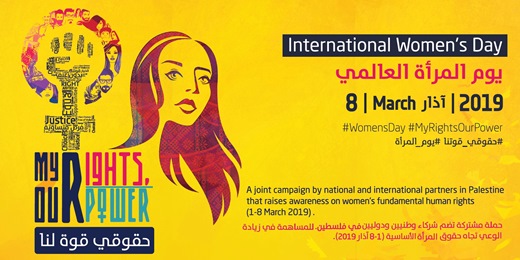In light of the European Union (EU) decision to suspend funding to the Palestinian National Authority and the implications this decision has on the social and economic situation, human rights, the rule of law and the already deteriorated situation in the OPT, Al-Haq and Al-Mezan submitted a letter to six EU countries expressing their deep concern over the decision by the EU to suspend all direct funding to the Palestinian National Authority PNA. They warned that the decision would exacerbate the emerging humanitarian crisis in the West Bank and Gaza Strip; severely damage the PNA’s ability to uphold the rule of law; and further diminish the Palestinians' ability to enjoy their fundamental human rights. Taken alone, each of these developments is cause for serious concern. Taken together, they will rapidly foment political and social instability beginning a downwards spiral from which it will be extremely difficult to recover. At this crucial juncture the decision to cease funding can only contribute to the further decline of the already grave situation on the ground.
While Al-Haq and Al-Mezan acknowledge the EU position that it does not want to harm the Palestinian people, we are compelled to highlight the contrast between this earnest sentiment and the consequences of withdrawing funding. A January 2006 report by the UN Office for the Coordination of Humanitarian Affairs (OCHA) noted that in 2005 the salaries paid to the 152,000 PNA employees effectively provided vital support for almost a million Palestinians, or approximately 25 percent of the population. Further, in the Gaza Strip, which is currently on the brink of humanitarian collapse due to Israeli closures, over a third of employed Palestinians work for the PNA. Clearly, if the PNA is unable to pay the salaries of its employees this will have a disastrous effect on the Palestinian people. Further, rendering the PNA unable to pay some 73,000 security personnel will undermine the proper maintenance of the rule of law.
The PNA is also responsible for the maintenance of essential infrastructure and the delivery of vital health care and social services. Since the beginning of the Oslo process in 1993 the development and running of governmental institutions dedicated to these purposes have been broadly supported by the international community through budgetary assistance to the PNA. Educational programmes, as well as health services such as immunisations, and the provision of clean water and electricity, are intrinsically dependent on functioning PNA institutions. As noted by the UN and numerous international agencies, this infrastructure cannot be replaced by the provision of humanitarian assistance. On a recent visit to Israel and the Occupied Palestinian Territories (OPT), the International Committee of the Red Cross (ICRC) Director of Operations made this point explicitly clear, stating that,
While the ICRC stands ready to step up its activities to help the Palestinian population, neither the ICRC nor any other humanitarian organization can replace the authorities in their role as provider of public services.
Withdrawing aid to the PNA renders the Palestinian people dependent on structures incapable of meeting their needs and dilapidates the very institutions that could help relieve this dependence. This represents a significant step backwards. In addition to the severe short-term consequences of such a withdrawal, allowing institutions that have been fostered for over a decade to fail has disastrous long term implications.
The decision of the EU is compounded by the Israeli refusal to transfer the customs duties, VAT and purchase tax paid by Palestinian firms on goods destined for the OPT, but collected by Israel. These ‘clearance revenues,’ in 2005, amounted to almost half of the PNA’s monthly budget. In both its acquiescence to Israel withholding revenue belonging to the PNA, and its own decision to cease assistance to the Palestinian government, the EU is significantly contributing to the eviscerating the PNA budget, potentially igniting an already explosive situation in the OPT.
Al-Haq and Al-Mezan reconfirm that the decision by the EU to cease direct aid to the PNA needs to be thoughtfully re-evaluated. The Palestinian government, elected in free and fair democratic elections, must be allowed to fulfil its primary function of providing essential services and infrastructure to the Palestinian people. If its ability to do so is undermined it is the Palestinian people, and not the government, that will suffer. At a minimum, the EU should exert pressure upon Israel to transfer the Palestinian clearance revenues immediately. Failure to reconsider the decision to cease direct funding or pressure for the transfer of the clearance revenues will not only precipitate a crisis in the OPT, but will also indicate the unwillingness of the EU and the international donor community to engage in securing a just and durable solution to the conflict.





